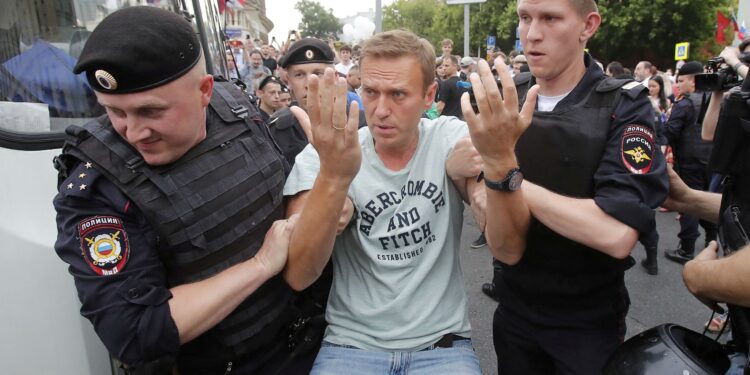T
he implicit death of Alexei Navalny, a prominent Russian opposition figure, would have far-reaching consequences for both the country and the global political geography. Navalny, a fierce critic of the Russian government, has been at the van of the opposition movement, championing translucency, responsibility, and popular reforms. His early demise would not only be a woeful loss for his sympathizers but also a significant blow to the opposition’s voice within Russia.
Navalny’s part as a Leading Opposition Voice
Alexei Navalny has surfaced as a prominent figure in Russian politics, challenging the status quo and marshalling wide support. As an anti-corruption activist and counsel, he has valorously exposed corruption within the Russian government and its inner circles. His investigative work, especially through his Anti-Corruption Foundation, has exfoliated light on high-position graft and embezzlement, earning him both accolades and adversaries.
Navalny’s seductiveness, determination, and capability to connect with the millions have made him an important force in Russian politics. Through social media platforms and his well-attended rallies, he has managed to intoxicate support from a broad sampling of society, including the youngish generation. Navalny’s political influence has been particularly apparent in recent times, with his calls for translucency and responsibility reverberating with a disillusioned public.
The Counteraccusations of Navalny’s Death
Navalny’s implicit death would have profound counteraccusations for Russia’s political geography. originally, it would leave a significant void in the opposition movement. His leadership and unvarying commitment to popular values have made him a symbol of a stopgap for those who seek change. His absence would weaken the opposition’s capability to organize and rally, potentially leading to a fragmentation of the movement and a loss of instigation.
likewise, Navalny’s death could further erode political freedoms and dissent within Russia. Under President Vladimir Putin’s governance, opposition numbers have faced adding suppression and persecution. Navalny himself has been subordinated to multiple apprehensions, politically motivated charges, and indeed a tried assassination using a whim-whams agent. His death would shoot a nipping communication to other opposition leaders and activists, stifling their voices and discouraging any bournes for change.
On the transnational stage, Navalny’s demise would also have counteraccusations. He has been a prominent critic of the Kremlin’s conduct, including its military interventions, and mortal rights abuses, and contended hindrance in foreign choices. Navalny’s influence and transnational recognition have played a vital part in drawing attention to these issues and holding the Russian government responsible. Without his voice, the opposition’s capability to endorse change and engage with the global community would be significantly lowered.
The Future of the Opposition Movement
While Navalny’s implicit death would be a tremendous loss, it’s important to note that movements are frequently larger than any individual figure. The opposition movement in Russia has shown adaptability and rigidity in the face of adversity, and it’s likely to continue seeking change, albeit in a different form.
still, it’s possible that new leaders would crop to carry the arsonist, If Navalny were to fall victim to tragedy. The opposition movement would need to regroup, reorganize, and find innovative ways to overcome the challenges posed by the government’s cathartic tactics. The movement could potentially shift its focus to grassroots activism, community organizing, and indispensable channels of communication to maintain its applicability and effectiveness.
also, the transnational community has a pivotal part to play in supporting the Russian opposition. Governments and associations committed to popular values can give backing, raise mindfulness, and put pressure on the Russian government to admire mortal rights and political freedoms. By standing in solidarity with the opposition movement, the global community can help ensure that Navalny’s heritage lives on and that the fight for a more popular Russia doesn’t waver.
The implicit death of Alexei Navalny would be a significant loss for the Russian opposition movement and a blow to the prospects of popular reform in Russia. Navalny’s influential voice, his unvarying commitment to translucency and responsibility, and his capability to rally the millions have made him a leading figure in the fight against corruption and despotism. His absence would weaken the opposition’s instigation, but it’s pivotal to flashback that movements are flexible, and new leaders can crop to carry the arsonist.
The transnational community must continue to support the Russian opposition, amplify their voices, and hold the Russian government responsible for its conduct. Navalny’s heritage should serve as a marshalling point for those who believe in popular values and mortal rights, both within Russia and around the world. Only through sustained pressure and support can the opposition movement continue to push for change and work towards a further popular future for Russia.






























